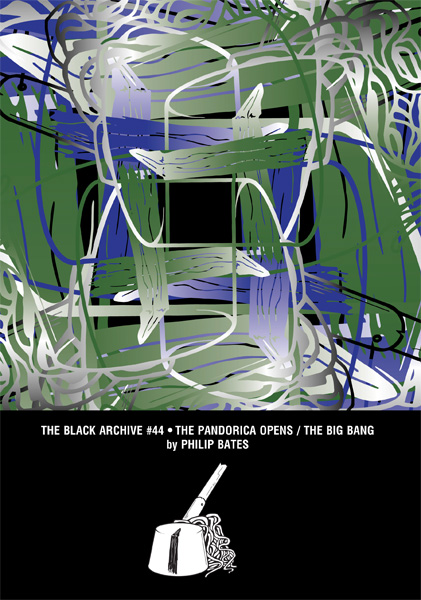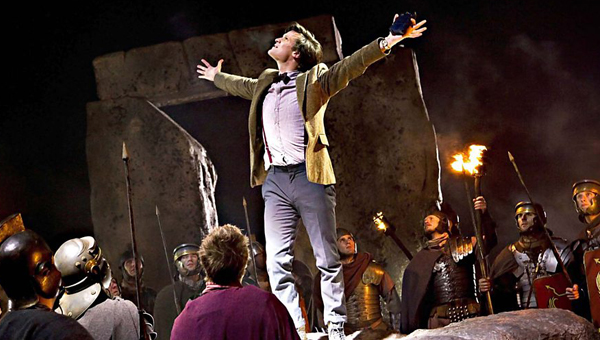I need to make a confession: this is my first Black Archive book. I developed a strong aversion to textual analysis and comprehension after a particularly dreary GCSE experience, and I’ve always preferred to just sit back and enjoy stories rather than dissect them.
And what we have with Black Archive #44: The Pandorica Opens / The Big Bang is a deep textual analysis of a Doctor Who story that I’m honestly quite indifferent about. So no pressure at all to its author, Philip Bates. No pressure.

If you’ve never read a Black Archive title before, they’re essay-style analyses of various Doctor Who stories, peeling back the layers of narrative to expose and critique the central themes, characters, continuity tidbits, and so on. Basically, if it were possible to study Doctor Who at degree level, this is pretty much what it would look like. This is the world of academia meets hardcore fandom, and it’s not limited to New Who; a quick scan of the Obverse Books website reveals a plethora of Black Archive dissertations, with even ‘Scream of the Shalka’ and ‘The Massacre’ (of which we don’t even have photos!) getting the essay treatment.
So this is what you can expect if you pick up Black Archive #44. Now, you don’t necessarily have to have seen the episodes; Bates gives a thorough and accurate synopsis of the story for the unfamiliar, and it’s much appreciated – even for someone like me who hasn’t watched the Series Five finale in a few years. It’s not overkill though; it’s just the right amount. And I’d extend that comment to the work as a whole. At no point does it ramble. It’s clean, clear and concise, whilst not scrimping on details. I wouldn’t say it’s “bitesize” but it’s certainly “easily digestible,” coming in at 166 pages including the bibliography.
In addition, it’s a testament to the author that he managed to make his analysis fun and interesting to consume. There was a brief moment about penguins where I found my gaze wandering, but apart from that I found it a fascinating read. Bates has clearly done his research well, even exploring such complex scientific concepts as quantum theory and Einstein’s theory of relativity.
And whilst I suspect most readers won’t have a deep understanding of physics, Bates recognises this. He makes the effort to explain the science in simple language before unpacking its relevance to – arguably – one of the most timey-wimey stories of the Moffat era. I must confess, some of what he wrote is going to take a couple of reads for me to fully digest, but I’ll grant Bates this concession owing to the incredibly complicated narrative he’s wrestling with.

Now, I mentioned ‘fun’ in the previous paragraph. The sense of joy really springs out of Bates’ writing. It’s clear that this is a passion project and his enthusiasm really exudes from the six-or-so chapters, and there are even a couple of humorous ‘Easter eggs’ peppered throughout the work which made me smile. They balanced the heavier academic moments and are sure to make many a Doctor Who fan grin.
Moreover, it’s worth noting that this book left me (genuinely) wanting to sit down and re-watch ‘The Pandorica Opens’ and ‘The Big Bang.’ I came away from the Black Archive with a new appreciation for the Series Five finale, and a keen interest to re-view it in light of the author’s analysis.
Black Archive #44: The Pandorica Opens / The Big Bang is available now from Obverse Books as both a paperback and ebook.

The Pandorica Opens (TARDIS exploding) Doctor Who scarf – Official BBC Eleventh Doctor scarf – order now from the Lovarzi shop!


Leave a Reply